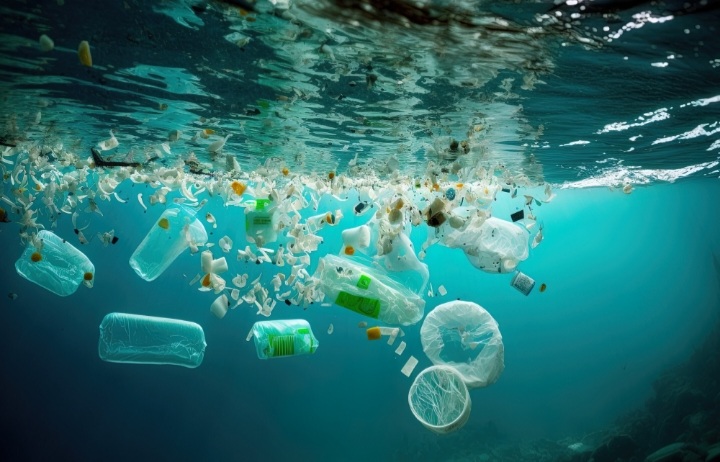Marine microbes can’t degrade some plastic waste, says new study

By Femi Akinola
Most plastics are made from fossils fuels and end up in the ocean, but marine microbes cannot degrade them, a new research has revealed.
Marine pollution has been a recurrent issue, with plastic mog of an estimated 170 trillion particles afloat in the world oceans.
A new study carried out by group of researchers led by Vitor Gambarini of the University of Auckland found no clear global connection between plastic pollution levels in the ocean nd the enzymes produced by marine microbes to degrade plastics.
This indicated that the ocean microbiome hasn’t evolved efficient mechanisms to break down various types of plastic that enters the oceans worldwide.
According to the researchers, there are several reasons for inability of ocean microbiome to evolve efficient mechanisms to break down various types of plastic that enters the oceans around the world because plastics are very different and complex.
Each type of of plastic, the researchers noted, has its own structure and properties, and ocean microbes might not have had enough time or pressure to evolve special enzymes for each type.
Environmental conditions such as temperature, current and nutrient availability also play a role in influencing microbial plastic degradation.
Most plastic are not degradable. For better understanding, there are four main types of plastics: biodegradable, bio-based, fossil based and no-biodegradable. Though the terms may likely be confusing and lead to misunderstandings about their environment impact.
Biodegradable plastics can break down naturally through the action of living organisms such as bacteria. This is because they are made from renewable sources such as corn starch or sugar cane and don’t linger in the environment for long periods. Examples of biodegradable plastics are Polycaprolactone (PCL), Polylactic Acid (PLA) and Polyhydroxybutyrate (PHB).
Bio-based plastics are also derived from natural materials such as plants. These plastics include Polyethylene Terephthalate (PET), which is widely used for clothing and containers for liquids and food. But, while PET can be made from renewable sources, most of the production is derived from fossil fuels, the study revealed.
Fossil based plastics are made from oil and gas. They include common types like Polyethylene (PE), which is used for single-food packaging, and Polyvinyl Chloride (PVC), commonly used for water pipes and wire insulation.
These plastics are generally not biodegradable. They do not decompose naturally and can persist in the marine environment for centuries, contributing significantly to oceans pollution and global warming.
According to the new study, PE is the most manufactured plastic type in the world. It accounts for 103.9 million metric tonnes (mmt) annually, followed by PET, 65.4 mmt and PVC, 50.5 mmt. Globally, only 9% of all plastic waste is recycled.
The Plastics NZ noted that terms such as ”bioplastic,” ”biopolymers,” ”bio-based,” and ”biodegradable” are being used interchangeably, even though they signify entirely different things.
Overall, researchers findings indicated that the global ocean microbiome has not yet evolved to efficiently degrade the many types of plastic pollution plaguing marine ecosystem. This highlights the ongoing danger plastic pollution poses for Marine environment.
